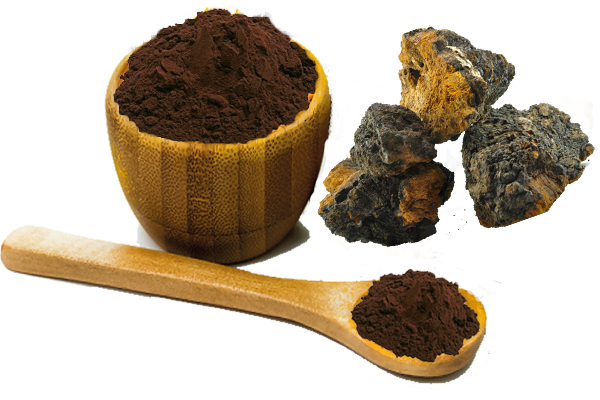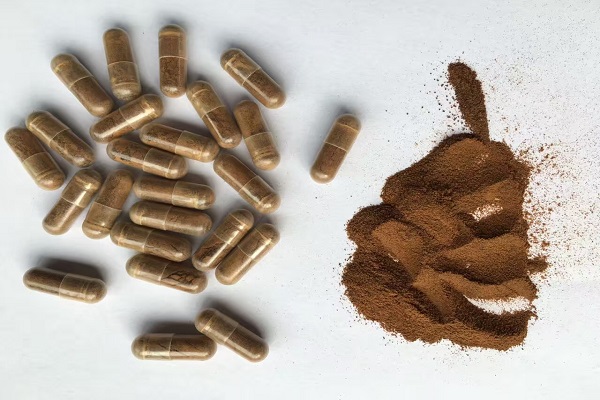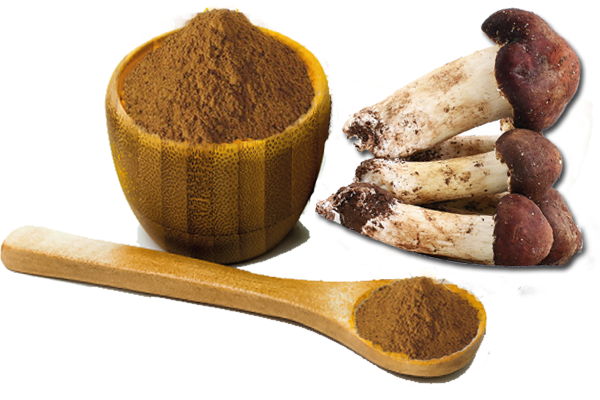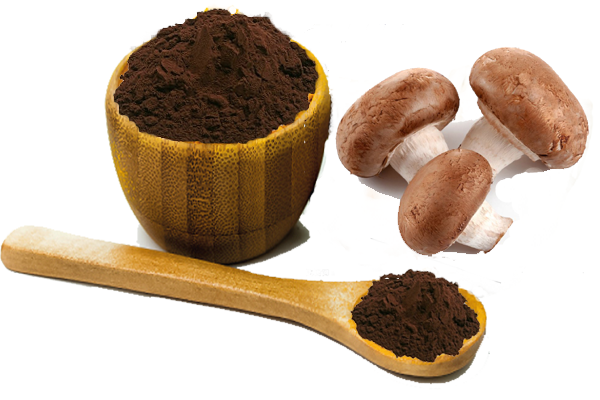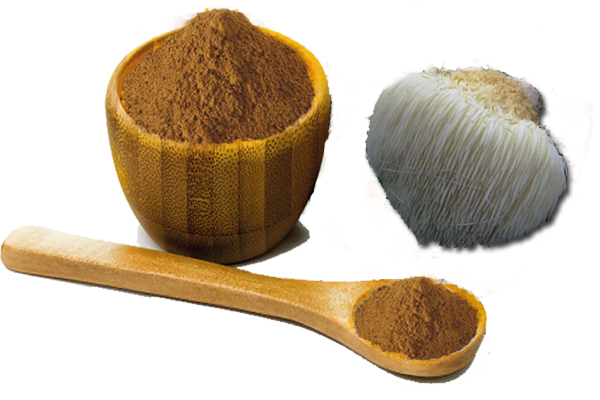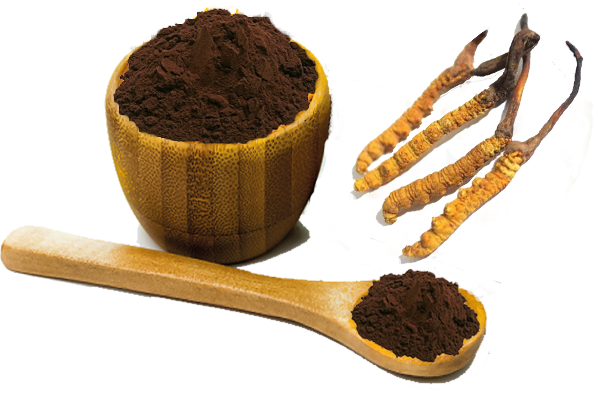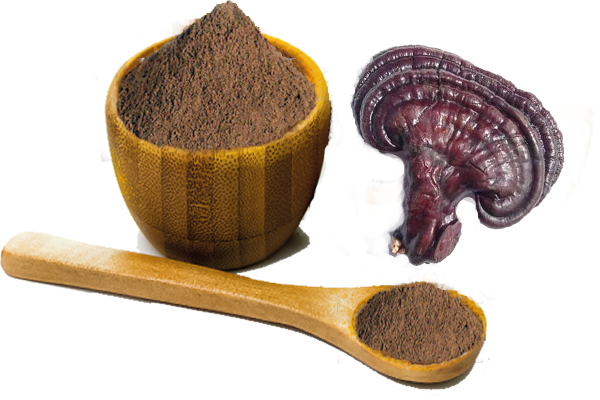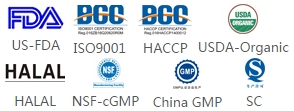
Chaga Mushroom Extract Powder
Chaga Mushroom Extract Powder
MIGU supplied Chaga Mushroom Extract polysaccharide 10%,20%,30%,40%,50%; refined powder and OEM service with analysis meets the EP, USP, JP, CP.....
Chaga Mushroom Extract Powder 10%, 20%, 30%, 40%, 50% polysaccharide by U offered by 17 years experienced cGMP manufacturer with warehosues in China–MIGU
Latin Name: Inonotus obliquus
Material Original:ZheJiang China & Russia
Extracted Part: Mycelium
Supported Purity: Polysaccharide10%~50%,4:1~30:1, refined powder, beta glucan 10%, 20%, 30%, and OEM blend powder
Quantity Supplied: 1kg, 10kg, 100kg, 1000kg per month
History of Chaga (Inonotus obliquus)
Inonotus obliquus,commonly known as chaga mushroom(a latinisation of the Russian term’чага’),is a fungus in
Hymenochaetaceae family,which is often referred to as the”king of medicinal mushrooms”.
It is parasitic on birch and other trees.This black tree fungus has long been respected in Northern Europe
Canada,China,Finland and Russia for its immune boosting qualities.Chaga mushroom tea has played a significant
role in Russian herbalism and Siberian folk medicine for hundreds,if not thousands of years,particularly for its
ability to help humans adapt to cold harsh climates.Inonotus obliquus grows in birch forests of Russia,Korea
North-Eastern China,NorthCarolina mountains and in China.
Specifications of Chaga Mushroom Extract Powder (Inonotus obliquus) from MIGU
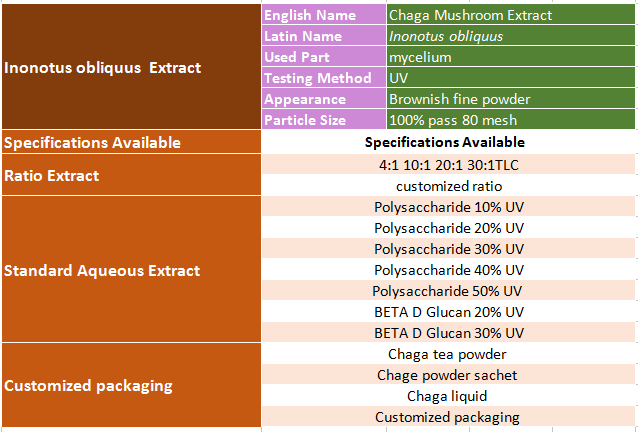
Origin of Chaga Mushroom Extract Powder (Inonotus obliquus) –Totally wild 100%Natural!!!
Chaga mushroom extract powder can be considered as healing only if it was manufactured from chaga mushroom picked from living
birch tree.Today,chaga is being grown artificially in many supplier,by fermentation.Fermentation is an artificial
cultivation of mycelium biomass from the mushroom stamm.Extract made from such”chaga”is almost usless
whatever they claim.Only wildgrown chaga has healing properties which chaga is supposed to produce.Our
chaga extract is made exclusively from wildgrown chaga–Getting from Siberian mountains as below area:
Geographically this fungus is mostly found in very cold habitat.It grows very slowly,suggesting it is not a reliable
source of bioactive compounds in the long run.Attempts at cultivating this fungus on potato dextrose agar and
other simulated mediums resulted in a reduced and markedly different production of bioactive metabolites
Secondary metabolites were either absent or present in very different ratios,and in general showed significantly
less potency in submerged cultures of Chaga.Cultivated Chaga furthermore results in a reduced diversity of
phytosterols,particularly lanosterol,an intermediate in the synthesis of ergosteroland lanostanetype triterpene
This effect was partially reversed by the addition ofsilverion,an inhibitorof ergosterol biosynthesis.
Additionally,the bioactive triterpene betulinic acidis completely absent in cultivated Chaga.In nature Chaga
grows predominantly on birchesand birch bark contain up to 22%of betulin.Betulin is poorly absorbed by humans
even when taken intravenously;its bioavailabilityis very limited.However,the Chaga mushroom converts betulin
into betulinic acid,and many internet sources state Chaga’s betulinic acid is bioavailable,even when taken orally
Unfortunately there is no research that confirms this claim.
All of our chaga material gettin from Grand Khingan belong to Siberia mountains owned the biggest virgin forest
In China,riched for the birch tree everywhere as below area
Extraction Processes of Chaga Mushroom Extract Powder (Inonotus obliquus)
Chaga is traditionally grated into a fine powder and used to brew a beverage resembling coffce or tea.For
medicinal use,an extraction process is needed to make at least some of the bio-active components actives are
bioavailable.These biofound in the mostly i ndigestible chitin cell walls of the chaga.Humans lack the enzyme
chitinase,so cannot fully digest raw mushrooms or their derivatives,and the digestive process works too fast for
the stomach acid to take effect.Scientific studies and research are in general also based on highly concentrated
extracts,and traditional Russian usage is also based on a form of hot-water extraction(by preparing zavarka).

extract processing for chaga mushroom extract powder.png
Currently,three extraction processes are used,each with a different outcome
Hot water extraction is the most common and the cheapest method.Ideally it should be performed under very
high pressure(480 psi/4.0 MPa);boiling will over time cause the bioactive beta-glucans to disintegrate,this is
neutralized by performing this phase of the extraction process under high pressure.
All water-soluble components will be present in the resulting extract.Hot water extraction performed without
high pressure can be compared to a traditional tea-making process;the therapeutic potential will be limited due
to the damage caused by the high temperature,as described above.Water-insoluble components,such as
phytosterol,betulinic acid and betulin,will be absent in a hot water extract.Several extraction rounds combined
with modern pharmaceutical techniques such as alcohol precipitation as a final step can result in high levels of
polysaccharides,up to almost 60%.Theß-D-glucans,the bio-active part of these polysaccharides,might add up to
±35%in a very pure extract.Polyphenolic components are water-solubles and will also be present.Ethanol or
methanol extraction isolates the water-insoluble components,betulinic acid,betulin and the phytosterols.This
extraction process is in general used as a second step after hot-water extraction,since ethanol alone will not
break down chitin effectively-heat is essential.
Fermentation is the most consuming,so is the most expensive;this method is not used very often.time-Because
fermentation methods are not standardized(many types of bacteria and fungi can be used in the process),the
outcome is also not standardized.
Combining the outcome of hot water and ethanol extraction yields a dual extract with all therapeutically
interesting bioactives present in a bioavailable form.Cheap,mass-produced extracts are in general hot water,low
percentage(4-20%)polysaccharide extracts with limited therapeutic value.The information on the supplements’
label will usually reveal inclusion or exclusion of components.However,the majority of mushroom dietary
supplements that are sold are non-extracted,being the cheapest option.To achieve at least some therapeutic
effects the consumer has to make a tea from it.

Unlike in raw chaga,in chaga extract these biological substances are active,i.e.digestable by our body.Raw chaga
cannot be digested by humans and healing compounds would leave our body without a trace.And”activation”can
be done only through process of extraction either with alcohol or with hot water.When you are brewing tea you
are making something similar to extraction Moreover,extraction process allow to get rid of usless substances and
concentrate healing biological compounds to a very high level.In order to achavie above high purity&digestable
by us,We usually be getting 1kg of chaga extract we use minimum 8kg of raw chaga to keep the high standards&
sustain the premium quality of our chaga extract which different from others!!
References
1.Zheng,W.F.;Liu,T.;Xiang,X.Y.;Gu,Q.(July 2007).“Sterol composition in field-grown and cultured mycelia of
Inonotus obliquus”(PDF).Yao xue xue bao=Acta pharmaceutica Sinica 42(7):750–756.PMID17882960.
2.Jump up^Zheng W,Miao K,Liu Y,Zhao Y,Zhang M,Pan S,et al.(2010).”Chemical diversity of biologically active
metabolites in the sclerotia of Inonotus obliquus and submerged culture strategies for up-regulating their production”.
Appl Microbio l Biotechnol 87(4):1237–54.doi:10.1007/s00253-010-2682-4.PMID20532760.
3.Jump up^Zheng,W.F.(July 2008).“Phenolic compounds from Inonotus obliquus and their immune-stimulating effects”(PDF).
Mycosystema 27(4):574–581.
4.Jump up^Müllauer,Franziska(2011).“Betulinic Acid Induced Tumor Killing”(PDF).
5.Jump up to:abPaper with background on extraction processes
6.Jump up^Matsunaga,Yui,et.al.(2014).“Hot compressed water extraction of polysaccharides from Ganoderma lucidum
using a semibatch reactor”.Asia-Pacific Journal of Chemical Engineering 9(1):125–133
7.Jump up^Rhee,S.Y.(2008).“A comparative study of analytical methods for alkali-soluble β-glucan in medicinal mushroom
Chaga (Inonotus obliquus)”.LWT-Food Science and Technology 41(3):545–549.doi:10.1016/j.lwt.2007.03.028.

